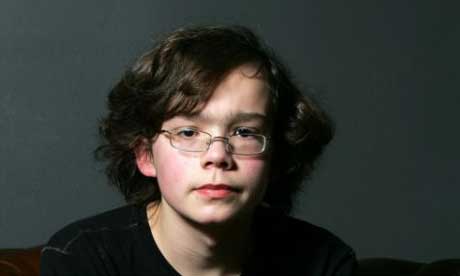TV review: Child Genius, Channel 4 - what happens when your offspring turn out to be brilliant?
The Call Centre, BBC3

Your support helps us to tell the story
From reproductive rights to climate change to Big Tech, The Independent is on the ground when the story is developing. Whether it's investigating the financials of Elon Musk's pro-Trump PAC or producing our latest documentary, 'The A Word', which shines a light on the American women fighting for reproductive rights, we know how important it is to parse out the facts from the messaging.
At such a critical moment in US history, we need reporters on the ground. Your donation allows us to keep sending journalists to speak to both sides of the story.
The Independent is trusted by Americans across the entire political spectrum. And unlike many other quality news outlets, we choose not to lock Americans out of our reporting and analysis with paywalls. We believe quality journalism should be available to everyone, paid for by those who can afford it.
Your support makes all the difference.Last year, I met Alma, a seven-year-old whose talent on the violin had inspired Stephen Fry to wonder online if she were "a new Mozart". It made a nice story (Alma sipped milky tea from a mug decorated with squirrels as she talked about composing her own opera), but most striking was the challenge she presented to her shy father, an amateur flautist. When your child turns out to be brilliant, what do you do – make them "normal", starving them of stimulation, or mould them into a Mozart, beaming as you rear a smarter version of yourself?
It was a dilemma that the more self-aware parents in Child Genius grappled with. The programme followed gifted children as they approached a Mensa contest to find Britain's best young mind. Hugo, a trainspotter with a locomotive brain, begged his weary parents to take him on rides, greeting trains as his peers might members of One Direction ("Look, that's a 422 Gatwick Express... Look, a class 319! Ohmigod, I think I'm having a panic attack!")
His mother conceded he was "a bit of a genius" (the kids in the programme had IQ levels in the top two per cent of the population, we learned) but added: "He's also in the top five per cent of irritating children." As she came to terms with his hyper-hunger for knowledge, she gave him trumpet classes to help expose him to different people – and girls – but Hugo would not be satisfied. They only took him to the Mensa quiz when a family friend suggested giving in and embracing the boy's special qualities.
Hugo excelled and considered parenting will, one hopes, produce in him a brilliant, happy adult. But I worried about some of his competitors. Longyin struggled in the first round. His father, Terence, a former Hong Kong cop, had turned their house (amazingly called Wits' End) into a one-brain boot camp. Terence took a military approach to parenting. "You either have a disciplinary life in the first 16 years and enjoy the remaining 60 years," he said, "or you do whatever you want and then become depressed or homeless, provided you are not killed by a drugs overdose or gang fighting." Yikes. Thankfully for Longyin, he aced round two and advanced to the next stage.
Josh, a chess prodigy at just eight, almost had a real panic attack as he was thrown into battle by his mother. Hilary rivalled Terence as a "tiger mother" (see also: "helicopter parent" – always hovering), giving up a successful career as an architect to coach, manage and publicise her son's talent, determined to turn him into a grandmaster by the age of 13. But 50 hours a week of chess did not prepare Josh for the quiz, and he wanted to go home after flunking round one. I wanted to jump through the screen and whisk him off to Alton Towers, but Mum wouldn't let him quit. Winning, she had said tellingly, "would be a very exciting moment for a mother".
It was week two at The Call Centre and the producers were running out of ways to make the real-life Office interesting. Even David Brent (as in Ricky Gervais) had struggled to watch last week's opening episode, which put an unabashed fly on the wall of a Swansea cold-call centre ruled by Nev, a less-than-gifted man-child who compared himself to Napoleon. "I'm starting to think that David Brent isn't so cringeworthy after all," Gervais had tweeted. Episode two was no better, as confected storylines involving lovelorn employees and an X Factor-lite "voice of the Welsh call centre" competition offered zero drama. Nev's tireless banter, meanwhile, became as annoying as one of his worker's cold calls offering "free" loft insulation. Truth can be stranger than fiction but it needs to be more entertaining than this – before any drama is added – to create a bearable hour of telly.
Join our commenting forum
Join thought-provoking conversations, follow other Independent readers and see their replies
Comments